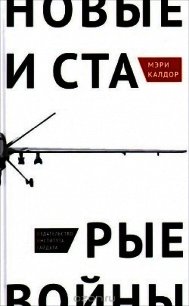Вооруженное насилие в палеолите (СИ) - Вишняцкий Леонид Борисович (читаем книги бесплатно .txt) 📗
Bar-Yosef O. 2010. Warfare in Levantine Early Neolithic. A hypothesis to be considered. Neo-Lithics (1), 6—10.
Bartosiewicz L., Gal E. 2008. Symptoms of aggression on animal bones from archaeological sites. Animal welfare, etologia es tartastechnologia 4, 3—25.
Bello et al. 2011: Bello S. M., Parfitt S.A., Stringer C. B.
2011. Earliest directly-dated human skull-cups. PLoS ONE 6 (2): e17026. doi:10.1371/journal. pone.0017026
Bocquentin F., Bar-Yosef O. 2004. Early Natufian remains: evidence for physical conflict from Mt. Carmel, Israel. JHE 47, 19–23.
Begoubn et al. 1922: Begoubn H., Cugulieres, Miquel H. 1922. Vertebre humaine traversee par une lame en quartzite. Revue anthropologique 32, 230—2.
Behrens H. W. 1978. Der Kampf in der Steinzeit (Ein Dis- kussionsbeitrag vom Aspekt des Prahistorikers. Mitteilungen der Anthropologischen Gesellschaft in Wien 108, 1–7.
Belcastro et al. 2010: Belcastro M. G., Condemi S., Mari- otti V. 2010. Funerary practices of the Iberomauru- sian population of Taforalt (Tafoughalt, Morocco, 11–12,000 BP): the case of Grave XII. JHE 58, 522–532.
Beltran A. 1982. RockArt of the Spanish Levant. The Imprint of Man. Cambridge: Cambridge University Press.
Bettinger R. L. 2013. Effects of the bow on social organization in Western North America. Evolutionary Anthropology 22, 118–123.
Boaz N. T., Ciochon R. L. 2004. Headstrong hominids. Natural History 113 (1), 28–34.
Boaz N. T., Ciochon R. L. 2004а. Dragon Bone Hill: An Ice- Age Saga of Homo erectus. New York: Oxford University Press.
Bobda et al. 1999: Bobda E., Geneste J. M., Griggo C., Mer- cier N., Muhesen S., Reyss J. L., Taha A., Valladas H. 1999. A Levallois point embedded in the vertebra of a wild ass (Equus africanus): hafting, projectiles and Mousterian hunting weapons. Antiquity 73, 394–402.
Boesch C. 2009. The Real Chimpanzee. Sex Strategies in the Forest. Cambridge: Cambridge University Press.
Bokonyi S. 1984. Animal Husbandry and Hunting in Tac-Gorsium. The Vertebrate Fauna of a Roman Town. Budapest: Akademiai Kiado.
Boroneant V., Nicolaescu-Plop§or D. 1990. Lesions trauma- tiques violentes datant de l'Epipaleolithique tardif du sud-ouest de la Roumanie. Anthropologie 28, 55–65.
Bratlund B. 1996. Hunting strategies in the Late Glacial on Northern Europe: A survey of the faunal evidence. Journal of World Prehistory 10, 1—48.
Brennan M. U. 1991. Health and Disease in the Middle and Upper Paleolithic of Southwestern France: A Bioarcheological Study. Unpublished Ph. D. dissertation. New York University.
Buzhilova A. P. 2005. The environment and health condition of the Upper Palaeolithic Sunghir people of Russia. Journal of Physiological Anthropology and Applied Human Science 24, 413–418.
Caspari R. 1997. Evidence of pathology on the frontal bone from Gongwangling. AJPA 102, 565–568.
Christensen J. 2004. Warfare in the European Neolithic. Acta Archaeologica 75, 129–156.
Churchill et al. 2009: Churchill S. E., Franciscus R. G., McKean-Peraza H.A., Daniel J.A., Warren B. R. 2009. Shanidar 3 Neandertal rib puncture wound and Paleolithic weaponry. JHE 57, 163–178.
Clottes J., Courtin J. 1994. La Grotte Cosquer. Paris: Editions du Seuil.
Cordier G. 1990. Blessures prehistoriques animales et hu- maines avec armes ou projectiles conserves. Bulletin de la Societe prehistorique franqaise 87, 462–482.
Dams L. 1984. Les peintures rupestres du Levant espagnol. Paris: Picard.
Defleur et al. 1999: Defleur A., White T., Valensi P., Sli- mak L., Cregur-Bonnoure E. 1999. Neanderthal cannibalism at Moula-Guercy, Ardeche, France. Science 286, 128–131.
Delluc B., Delluc G. 1971. La grotte ornee de Sous-Grand- Lac (Dordogne). Gallia prehistoire 14, 245–252.
Estabrook V. H. 2009. Sampling biases and new ways of addressing the significance of trauma in Neandertals. Unpublished Ph. D. dissertation. The University of Michigan.
Estabrook W. H., Frayer D. W. 2013. Trauma in the Krapina Neandertals: Violence in the Middle Paleolithic? In: C. Knusel, M. Smith (eds.). The Routledge Handbook of the Bioarchaeology of Human Conflict. London: Routledge, 67–89.
Ferguson R. B. 2013. Pinkers's List. Exaggerating prehistoric war morality. In: D. P. Fry (ed.). War, Peace, and Human Nature: The Convergence of Evolutionary and Cultural Views. Oxford: Oxford University Press, 112—131
Formicola V. 2007. From the Sunghir children to the Romito dwarf. Aspects of the Upper Paleolithic funerary landscape. CAn 48, 446–453.
Franciscus R. G., Holliday T. W. 2013. Crossroads of the Old World: Late hominin evolution in Western Asia. In: Smith F. H., Ahern J. C. M. (eds.). The Origins of Modern Humans: Biology Reconsidered. Hoboken: Wiley, 45–88.
Guilaine J., Zammit J. 2005. The Origins of War. Violence in Prehistory. Malden: Blackwell.
Guthrie R. D. 2005. The Nature of Paleolithic Art. Chicago: The University of Chicago Press.
Henry-Gambier D. 2005. Evolution des pratiques funeraires en Italie au Paleolithique superieur. In: Vialou D., Renault-Mikosky J., Pathou-Mathis M. (eds.). Com- portements des hommes du Paleolithique moyen et superieur en Europe: territoires et milieux. Liege: ERAUL 111, 213—29.
Henry-Gambier D. 2008. Comportement de populations d'Europe au Gravettien: pratiques funeraires et interpretations. Paleo 20, 165–204.
Hernandez Perez et al. 1995: Hernandez Perez M. S., Mar- set P. F. I., Ferrer E. C. 1995. Arte rupestre en Alicante. Alicante: Fundacion Banco Exterior.
Jackes M. K. 2004. Osteological evidence for Mesolithic and Neolithic violence: Problems of interpretation. In: Roksandic M. (ed.). Violent Interactions in the Mesolithic: Evidence and Meaning. BAR IS 1237. Oxford: Archaeopress, 23–39.
Judd M. 2004. News from the British Museum. British Association for Biological Anthropology and Osteoar- chaeology Annual Review 5, 5.
Klaatsch H. 1920. Der Werdegang der Menschheit und die Entstehung der Kultur. Berlin: Deutsches Verlags- haus Bong und Co.
Klima B. 1988. A triple burial from the Upper Paleolithic of Dolni Vestonice, Czechoslovakia. JHE 16, 831–835.
Koslowski S. K., Sachse-Koslowska E. 1993. Maszycka Cave: a Magdalenian site in Southern Poland. Jahrbuch der Romisch-Germanischen Zentralmuse- ums 40, 115–205.
LeBlanc S. 2010. Early Neolithic warfare in the Near East and its broader implications. Neo-Lithics (1), 40–49.
Leroi-Gourhan A. 1968. The art of prehistoric man in Western Europe. London: Thames & Hudson.
Letourneux C., Petillon J.-M. 2008. Hunting lesions caused by osseous projectile points: experimental results and archaeological implications. JAS 35, 2849–2862.
Lopez-Montalvo E. 2011. Violence et mort dans Part rupes- tre du Levant: groupes humains et territoire. Dans: Baray L., Honegger M., Dias-Meirinho M. H. (dir.). L’armement et l’image du guerrier dans les socie- tes anciennes: de l’objet a la tombe. Dijon: Editions universitaires de Dijon, 19–42.
Martin H. 1907. Recherches sur revolution du Mousterien dans le gisement de la Quina. Tome 1. Paris: Schleicher.
Martin H. 1934. Pathologie osseuse prehistorique. Bles- sure par arme de jet sur une vertebre de renne. Compte-rendu de la 58e session de l’Association franqaise pour l’avancement des sciences. Rabat, 183–184.
McCown T. D., Keith A. 1939. The Stone Age of Mount Carmel. Vol. 2. The Fossil Human Remains from the Levalloiso-Mousterian. Oxford: Clarendon.
Mezzena F. 1976. Nuova interpretazione delle incisioni pa- rietali paleolitiche della Grotta Addaura a Palermo. Rivista di scienze preistoriche 31, 61–85.
Monk S. J. 1997. Conflict and competition in Spanish prehistory: the role of warfare in societal development from the late fourth to third millennium BC. Journal of Mediterranean Archaeology 10 (1), 3—32.




